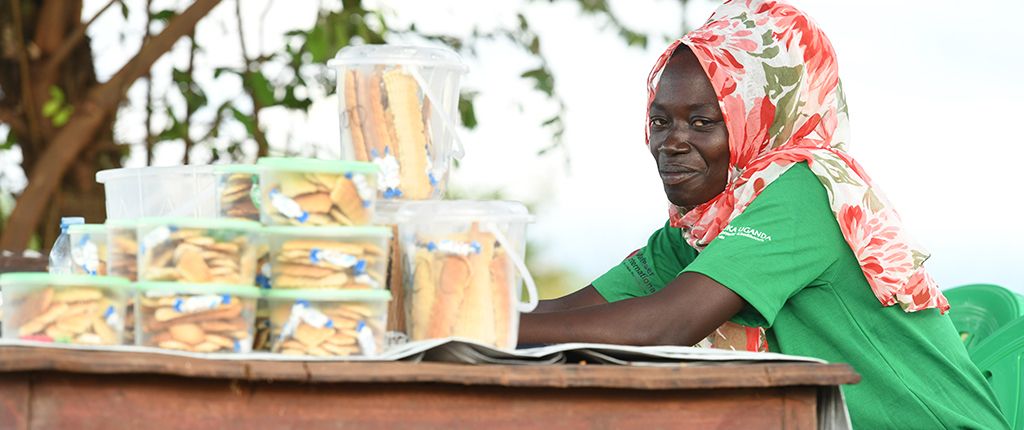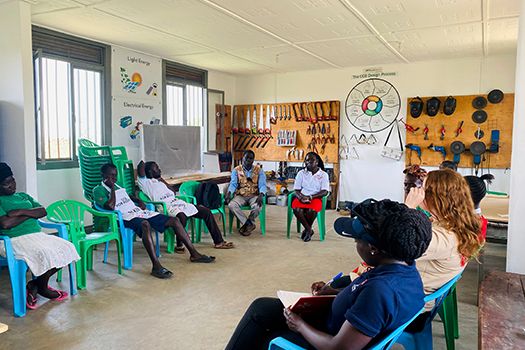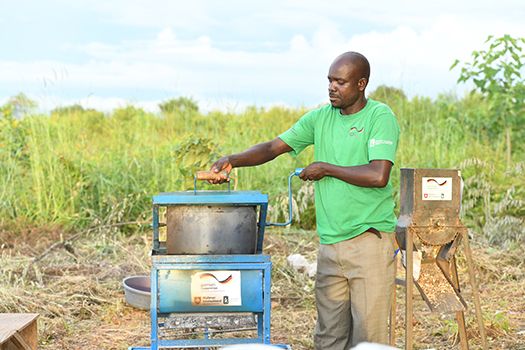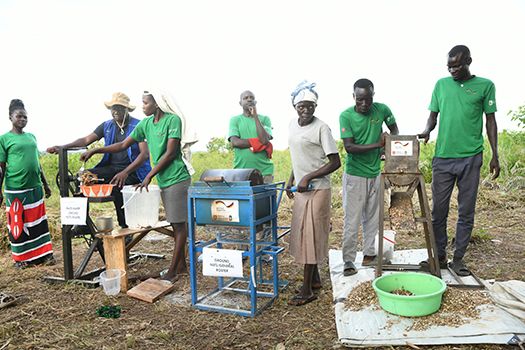
Creative capacity building and empowering innovation

In 2019, Kulika Uganda, in partnership with Malteser International, launched the Creative Capacity Building project in the Rhino and Imvepi refugee settlements in North Western Uganda. This initiative was designed to improve livelihoods by creating employment opportunities for vulnerable youth from refugee and host communities. The program also integrates business skills training, covering crucial topics such as business selection, marketing, pricing, and record-keeping.
The Creative Capacity Building program, funded by the German Federal Foreign Office, is an intensive five-day practical design training. It begins with an overview of the design process, a case study, and a practical exercise. Participants learn basic sheet metal and woodworking skills by creating a corn husking machine. At the end of the first day, they list the problems they want to tackle during the training. On the second day, participants choose their projects and are assigned to teams of four or five people. They start by gathering information and defining their problems, then continue learning and applying the steps of the design process to their projects, building an initial prototype. Participants return for a second week to refine their technology, ensuring they have a fully functional prototype by the end of the training.
Building solutions and businesses

Since its inception, the project has seen remarkable success, with 73 technologies developed across different cohorts. Participants are grouped based on their interests to foster collaboration and innovation. Each training cohort typically consists of 20-25 participants per month, with plans to increase the frequency to twice a month. In 2023 alone, 445 individuals had been trained, with an estimated 758 to be trained by the end of 2024.
Participants are selected based on their express of interest in the project, with 60% being refugees and 40% host community members. The composition includes 60% women and 40% men, typically aged between 18-40. The training is predominantly practical and hands-on, requiring only an active willingness to participate.
With 70% of participants reportedly earning incomes from businesses incubated from CCB technologies, the impact of the project is best illustrated through just some of its success stories:
- The Bakery Group from Ofua III Zone - Comprised of five South Sudanese refugee members, this group identified the need for fresh baked goods within the camp. They developed a multipurpose oven that operates without electricity, producing biscuits sold in packets of five. Their innovation has addressed a critical gap in the community and provided a sustainable source of income.
- The Mercy Group - This group specializes in making liquid soap using an innovative stirring contraption that increases efficiency and reduces manual effort. Their product meets a significant need for hygiene supplies in the camp, demonstrating how simple innovations can have a profound impact.
- Richard Towongo - A South Sudanese refugee, Richard designed a groundnut roaster capable of roasting 20kgs at a time, meeting the high demand for roasted groundnuts in the community. His invention has not only addressed a local need but also provided him with a steady income.
- Westen - A 24-year-old South Sudanese refugee, Westen participated in the Creative Capacity Building workshop and designed a bicycle-run nut grinder. This innovation supports the need of customers at the Ofua market center, providing him with a sustainable income and demonstrating the transformative impact of the project on individual lives.
Fostering economic independence and resilience

Through these initiatives, Kulika Uganda and Malteser International are empowering refugees to create innovative solutions to address community challenges. By fostering economic independence and resilience, the Creative Capacity Building project is transforming lives and communities. Participants gain not only vocational skills but also the confidence and capability to improve their circumstances and contribute meaningfully to their communities.
We are committed to expanding the initiative, with plans to focus on WASH and sustainable innovations, and providing platforms like CCB market fairs for participants to exhibit their technologies, ensuring more individuals benefit from the transformative power of innovation and entrepreneurship.
Support our efforts to empower refugees and host community members through vocational training and innovative solutions. Together, we can build a brighter, more resilient future for all.








